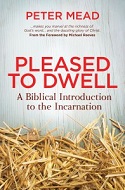The fulfillment of God’s great sin-conquering, life-giving, problem-solving, Satan-defeating, promise plan was Mary’s son, baby Jesus.
 Photo: Mike Arney (Unsplash, CC)
Photo: Mike Arney (Unsplash, CC)
To the first-time reader, the Old Testament can feel like a confusing collection of laws and awkward stories. Before too long it becomes an amazing epic retelling of God’s preparation for the arrival of his Son into our world. If you have eyes to see, then the Old Testament becomes a treasure trove of God’s presence and God’s promise. It is certainly not about heroes of the faith, for God’s people were consistently faithless, and yet God’s faithfulness outshines their wretchedness. Where God had every right to declare his promises null and void, instead he kept adding to the promise and moving toward the arrival of the Messiah.
Then there is a blank page. This is it. This is the moment in a Bible read through that should make your heart leap. So, you arrive in Matthew’s Gospel, chapter 1. Here it is! This is the good news! And then you find . . . a genealogy. Disappointing to say the least. Surely God could have launched the New Testament with something more exciting than a list of old names?
Actually, the genealogy at the start of the New Testament is a reason to celebrate. More than that, it gives us reason to press on in our ministry. Here are three reasons to be thankful for the genealogy that launches our New Testaments:
1. The good news that we proclaim is not a fairy tale, it is rooted in history.
The arrival of God the Son into our world is not announced with a “Once upon a time,” introduction as we would expect of a fantasy tale. It is announced with a “This is the genealogy of…” that we would expect of a historical figure. This is so important. In the midst of our preaching and pastoral care of souls we can forget how alien the good news of Jesus actually sounds to people. It can sound like a fairy tale that we think might offer hope in the “real world.” But let us never forget that the Gospel is not a fairy tale, it is rooted in actual events.
The Gospel is not a mythical tale that we speak into the real world to give people a purer perspective by which to live, or a touching tale that sets an example for us to follow in our infinitely more complex experience. The Gospel is not a suggestion for how we should live. It is an announcement of what God has done.
Real historical figures had real flesh and blood children who gave birth to actual children, and so on. This genealogy offers forty-two touchdown points in history as preparation to the touchdown point that transforms history. If Jesus was merely a myth, or only an example, or somehow just a fairy tale to inspire us, then all this would be so unnecessary. If Jesus were a fairy tale, then he need be no more than a heavenly interruption in our normal world. Instead, he really entered right into our normal world.
It is important to note that Matthew’s genealogy is carefully crafted. He is deliberately selecting generations in order to build a shaped list, rather than an exhaustive one. He is also tracing a line that diverges from the line that Luke includes in his Gospel. It is not a contradiction, after all, your genealogy could also take any number of lines down through the centuries.
Read through the genealogy and ponder your ministry. They faced struggles and uncertainty, yet they were part of God’s great story in ways most could hardly imagine. We too don’t see the end of our story, but we know we are part of his story. Thank God that the Gospel is rooted not in myth, but in history. He came into our world and now we can live and serve him in that same history. Real people, living real lives, facing real struggles, and always part of his story!
2. The good news that we proclaim is not shaped by our culture’s needs, it is shaped by God’s promise plan.
If we were to try and write the story of a God-sized fix to our hellish plight, we would probably make it a story of an other-worldly super-hero coming to our aid. We wouldn’t have that hero becoming one of us, and a lowly one of us at that. We would surely not trace a line down through two millennia of dysfunctional families, men who gave their wives away, men who stole other men’s wives, women of ill-repute, and disobedient nationals humiliated by deportation.
And yet there is a shape to this genealogy. It is a deliberate shape that Matthew introduces in verse 1 and underlines with summary sums in verse 17. This is the Abraham to David to Exile to Jesus genealogy. What is significant about Abraham, David and the Exile? Surely it is not the giving wife away (twice), stealing a wife and having her husband killed, and the humiliation by deportation… surely these are not the high points of the story? Actually, no, but as we will see in the next point, this background certainly adds a unique colour to it all.
What is significant about this shaping of the genealogy is that these are three points in history where God leaned forward and added detail to his great promise plan. God had promised to rescue humanity from sin back in Genesis 3:15. That promise was developed when God promised to make Abram’s name great and to bless all the families of the earth through his seed. Tick, tock, the clock was counting down.
King David was blown away by further development on that promise, that his throne would endure forever and his greater son would ascend to it in the future. Tick, tock, the clock continued to count down.
The prophets spoke in the context of national failure, in the context of Israel’s flaws being fully revealed by the Old Covenant that the day was coming when God would establish a New Covenant that would change everything. Tick, tock, the clock was counting down and this genealogy shows us where it ends.
Jesus.
The fulfillment of God’s great sin-conquering, life-giving, problem-solving, Satan-defeating, promise plan was Mary’s son, baby Jesus.
What an encouragement this is to us as we continue to minister two thousand years later. It is easy to see the mess of humanity. And it is easy to miss that God has a greater plan being worked out in his own timing. We can trust him, we must trust him. We have no other hope besides him.
3. The good news that we proclaim is not coloured by human success, it is coloured by God’s grace for sinners.
We could put on rose-tinted spectacles and see the good in this list. After all, Abraham was eventually a man of faith. David was a man after God’s own heart. Jacob was at least productive when it came to building a nation, and Boaz was an all-around good egg. There are others we could name in the list, people of noble character, including Ruth, not to forget Joseph and Mary, of course. Definitely some good people, or in many cases, some good moments.
Nevertheless, the more you study the list, the more you see the sin. This is not a list of Israel’s finest and greatest. This is a list of ordinary people who stumbled and messed up and blew it and sinned. This is not a bland list of empty suits – positions celebrated without recognition that it was real humanity in those roles. This is not a list brightened by human success, but rather a list coloured in by God’s grace to fallen people.
Did Abraham, Isaac and Jacob deserve to receive God’s good promise? Obviously not, if you read through Genesis. Did David deserve to have his throne established over the whole world forever? Definitely not, if his story is heard in full. Did Israel deserve the New Covenant? Not in a million years.
God’s grace transforms human mess.
And perhaps the greatest colour in the genealogy? Surely it is the colour added by the unusual inclusions … Tamar, Rahab, Ruth, and the wife of Uriah. Four women. Probably four foreign women. Most importantly, four women with significant question marks over their moral purity. Tamar dressed up as a shrine prostitute to trick her father-in-law into giving her a son. Rahab’s name always comes with the title of her profession. Ruth was a wonderful women, but she did get a man drunk and slip under the covers at midnight. And Uriah’s wife, Bathsheba, was involved in the greatest scandal ever seen in Israel’s royal court. They weren’t all bad, in fact, all of them were women of faith. But they all had that question mark hanging over them.
And that is the colour that sets up the final woman in the list – Mary. A woman of faith. And yet a woman with her moral purity questioned by all. She was pregnant before her wedding. It was a scandal, even in a sin-stained place like Nazareth. But this was not more of the same human mess. This was God’s answer to the human mess.
The genealogy might first appear dull, then at a closer look it seems to contain some great names, but if you keep looking you see the mess of those lives, and if God opens our eyes to see, we start to see the glorious grace of God shining through it all.
That is where this post ends, but it is where hope begins. When God gives us eyes to see the beauty of his glorious grace shining in the mess of humanity. The genealogy prepares us for the coming of Jesus, the Christ. Maybe this genealogy prepares us to press on in our messy ministries too – knowing that God’s great promise plan and glorious grace has already entered our world and brought the hope we all so desperately need.

A couple of years ago I wrote Pleased to Dwell: A Biblical Introduction to the Incarnation – I hope you can get hold of a copy and enjoy a light biblical read on this critical subject of God’s Son becoming one of us so that we could be one with Him! It is not just a subject to study at Christmas. The incarnation is in the very DNA of the Christian faith.

Las opiniones vertidas por nuestros colaboradores se realizan a nivel personal, pudiendo coincidir o no con la postura de la dirección de Protestante Digital.
Si quieres comentar o